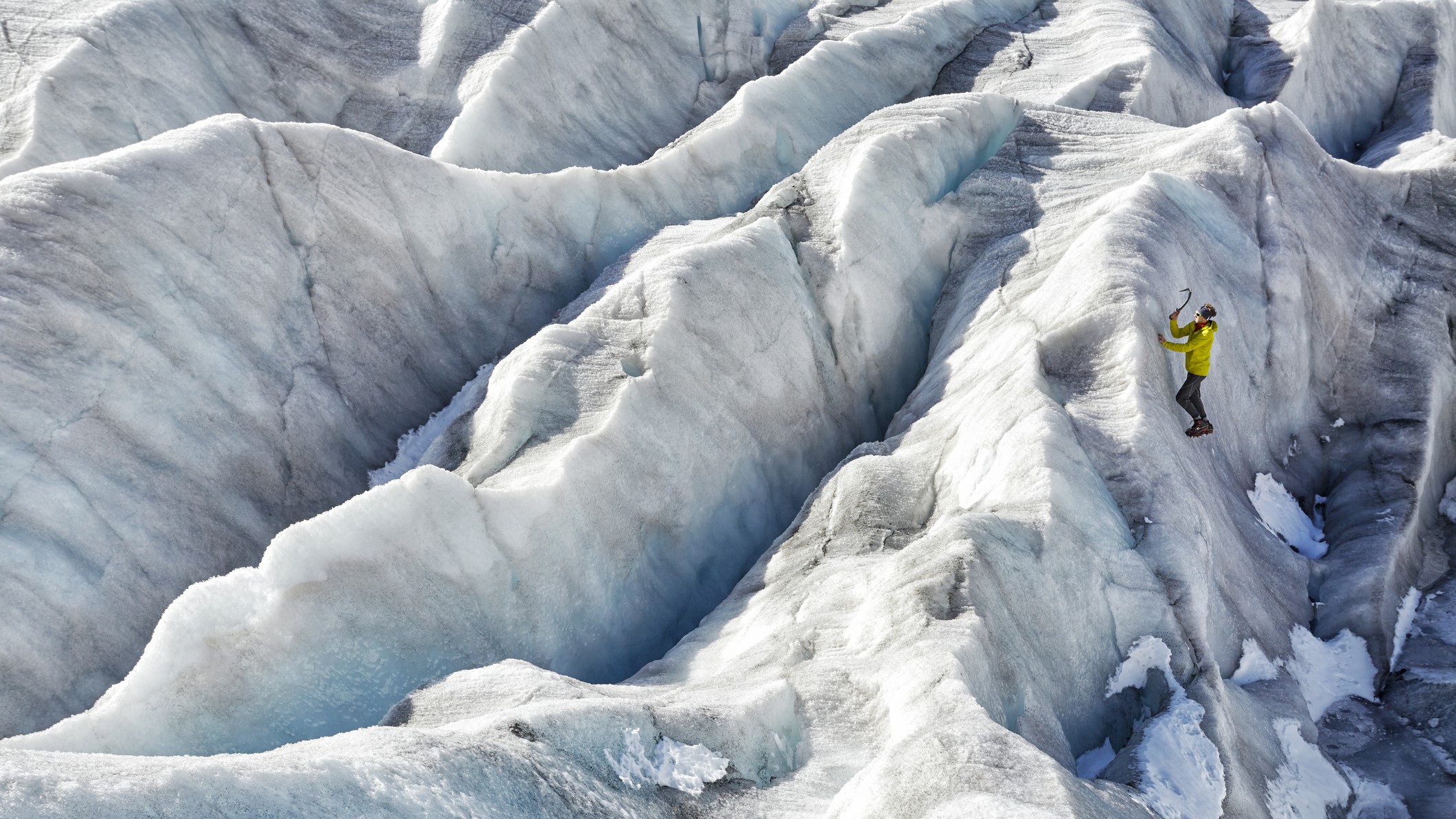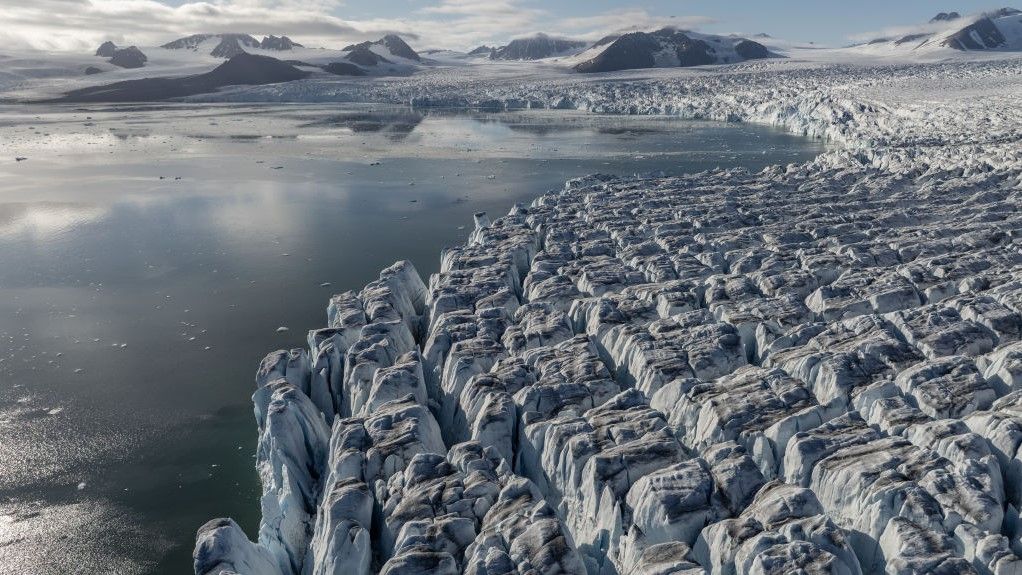Earth’s glaciers lost 300 billion tons (273 billion metric tons) of ice every year on average between 2000 and 2023, amounting to a 5% decline in volume since the start of the millennium, a groundbreaking new study finds.
The loss equates to roughly three Olympic swimming pools’ worth of ice melting or breaking off from glaciers every second, according to the French National Center for Scientific Research (CNRS), which was involved in the study together with dozens of other research institutions.
This startling decline is the result of global warming driven by our ballooning greenhouse gas emissions.
“We expected to find that glaciers are melting, but the amount of ice lost in the past few years is shocking even for us scientists,” said lead author Michael Zemp, a professor at the University of Zurich and director of the World Glacier Monitoring Service.
The results revealed extreme losses in glaciers in Europe’s Alps and Pyrenees mountains, with both regions showing a 40% decline in glacier volume over the study period. “In the European Alps, glaciers lost 10% of their ice in just two single years,” Zemp told Live Science in an email.
Related: Alaska’s ice is melting in front of our eyes, staggering satellite shots show
For the study, researchers compiled satellite data and direct measurements of every glacier region in the world except the Greenland and Antarctic ice sheets, which are both so big they have a delayed response to warming, Zemp said.
Scientists gathered and converted hundreds of glacier-related datasets into time series that they could then analyze to paint a global picture of how glaciers have changed over time.
“Over the past 20 years we got a wealth of satellite sensors to estimate glacier elevation and mass changes,” Zemp said. “While agreeing in general about glacier melt, the exact numbers differed quite a bit from sensor to sensor” — hence the need to convert all the numbers to one format, Zemp said.
The results, published Wednesday (Feb. 19) in the journal Nature, revealed stark regional differences in ice loss during the study period. Glaciers in the Alps and Pyrenees experienced the greatest decline relative to their size, while glaciers on the subantarctic islands only lost about 2% of their ice, according to a statement from the University of Zurich.
Researchers also found a 36% increase in annual ice loss between the first half of the study period, between 2000 and 2011, and the second half, between 2012 and 2023, suggesting that ice loss is accelerating.

Excluding the Greenland and Antarctic ice sheets, glaciers worldwide held about 134,182 billion tons (121,728 billion metric tons) of ice in 2000. By 2023, that figure had dropped to about 126,971 billion tons (115,186 billion metric tons), according to the study.
The volume of ice lost from glaciers during the study period caused global sea levels to rise by 0.7 inches (18 millimeters), the researchers noted, which is 0.1 inches (2.5 mm) more than the Greenland Ice Sheet has contributed to sea level rise since the 1990s.
Sea level rise is not the only risk linked to glaciers melting. “Glaciers are vital freshwater resources, especially for local communities in Central Asia and Central Andes,” study co-author Inés Dussaillant Lehmann, a postdoctoral researcher and glaciologist at the University of Zurich, said in the statement. Dwindling freshwater reserves from glaciers could threaten water security in these regions, according to the statement.
Looking ahead
The new research is the first to paint a consistent global picture of glacier ice loss and will provide a foundation for similar studies in the future, said Samuel Cook, a glacier modeling expert and junior research group leader at the University of Erlangen-Nuremberg in Germany who was not involved in the study.
“This is about as robust a piece of global-scale data analysis as it’s possible to have,” Cook told Live Science in an email. “The thing that stands out to me is the sheer methodical thoroughness of the authors and the scale of the study.”
The first quarter of the 21st century saw glaciers worldwide decline by 5% — but this is just a fraction of what could unfold over the next decades.
Previous modeling revealed that at least 25% of the ice that remains in glaciers today will be lost by 2100 even if we slash our greenhouse gas emissions, because glaciers have a delayed response to climate change, Zemp said. Should emissions remain the same or increase, the world could lose 50% of its remaining glacier ice by the end of this century, he said.
Only immediate action can stave off the worst outcomes, Zemp said. “Every tenth of a degree [Celsius] of avoided warming will help to preserve glaciers and will save us from related downstream impacts,” he said.
